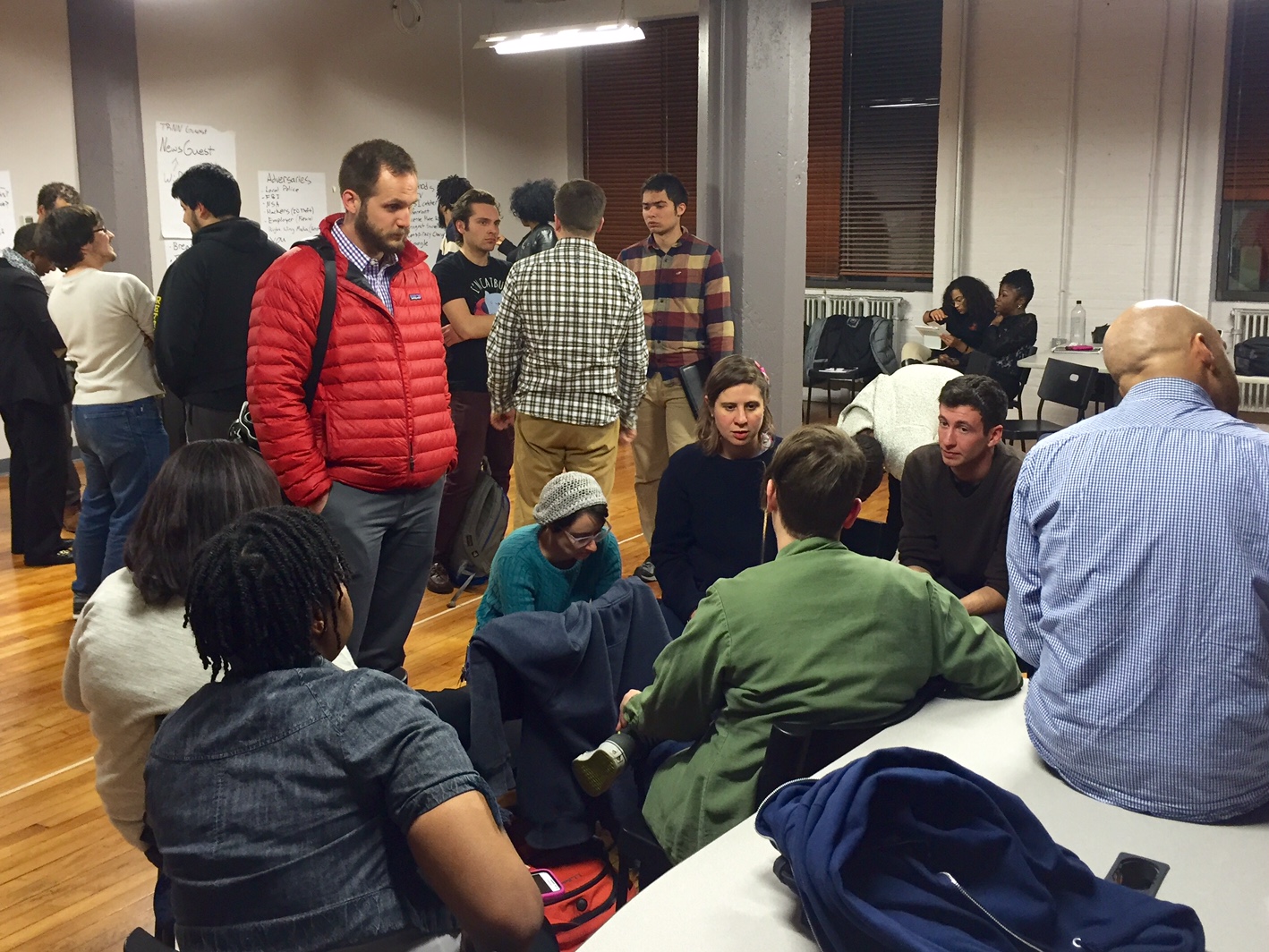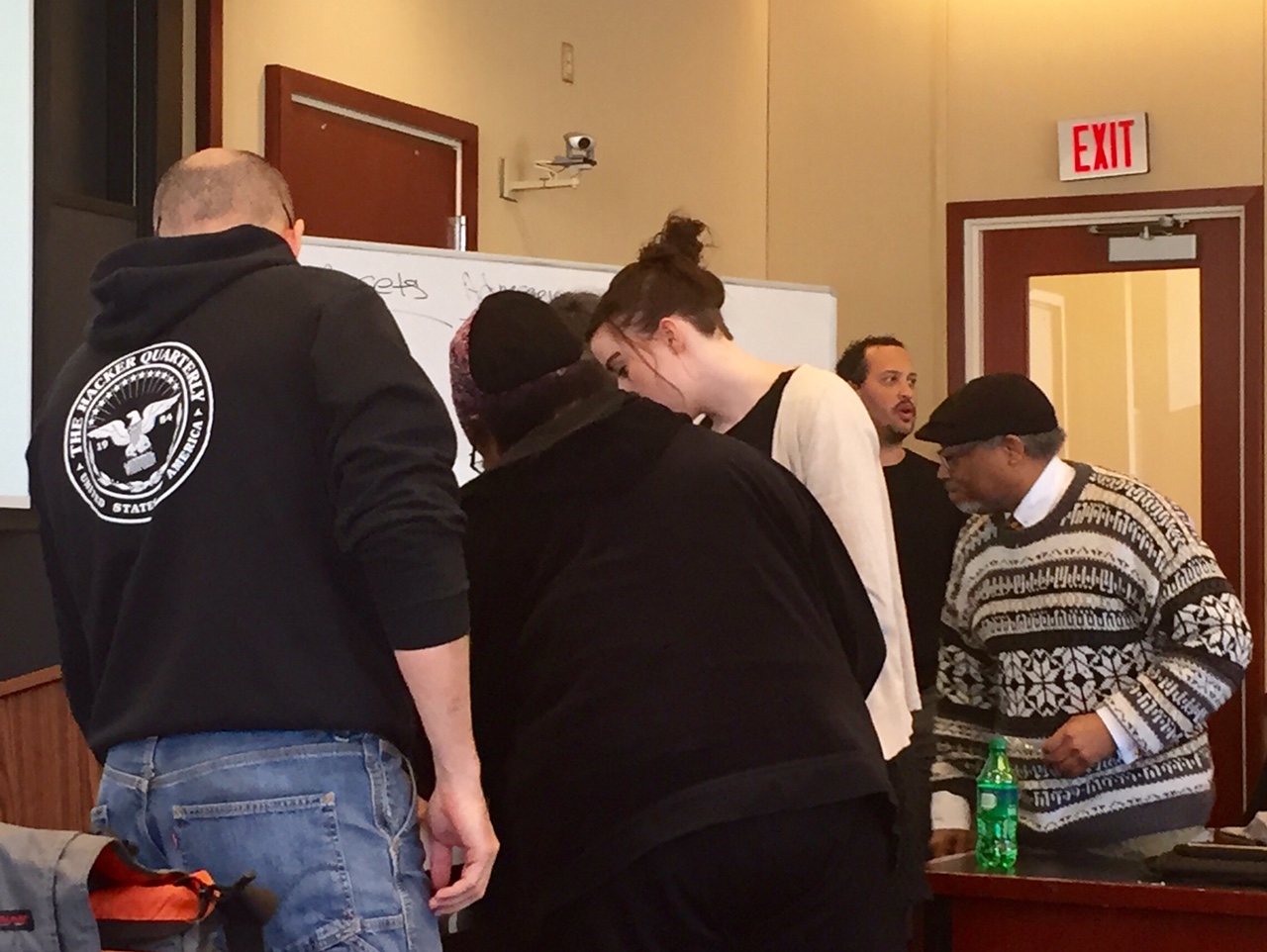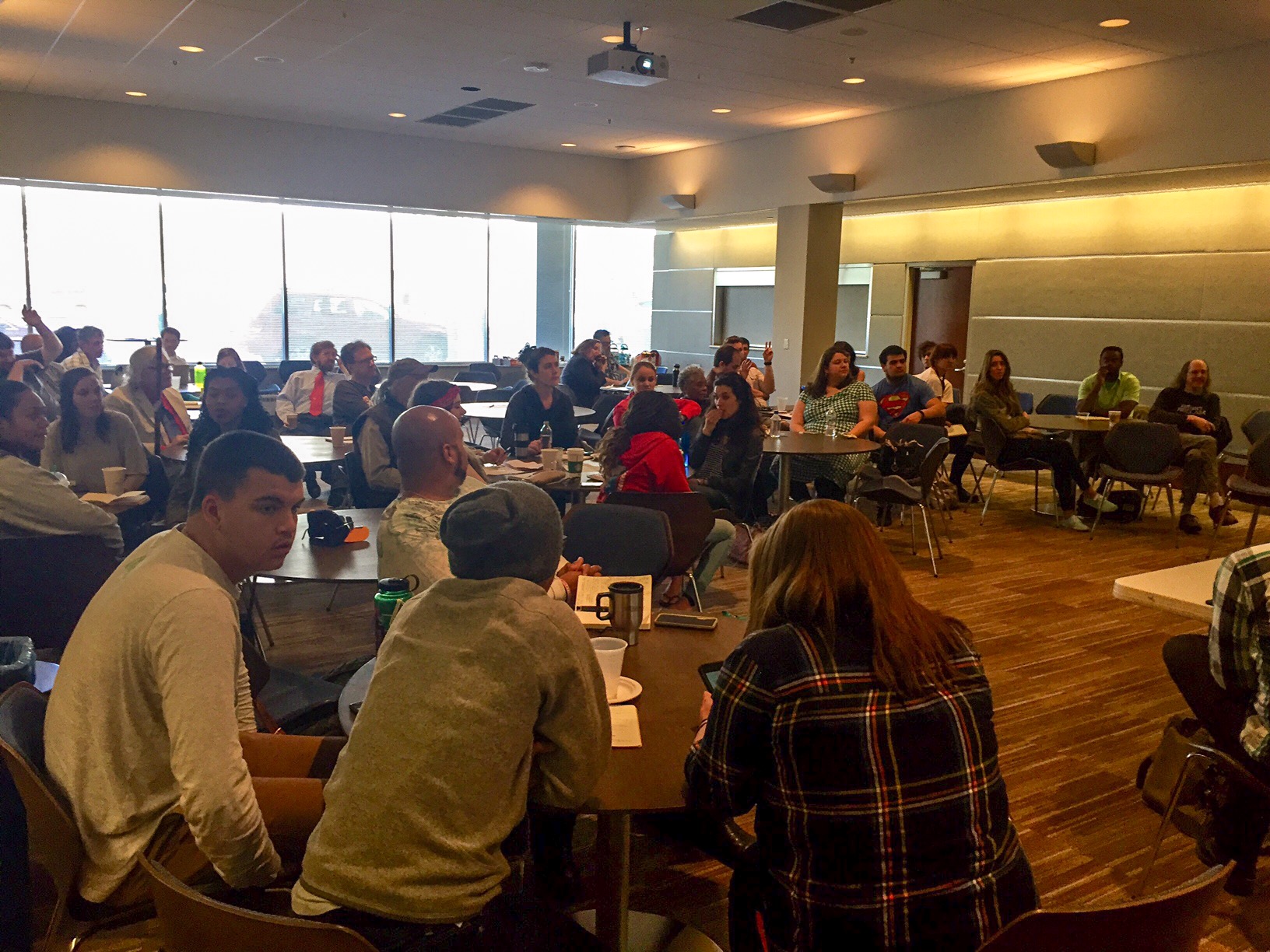When setting out on a recent speaking tour in the wake of launching the Electronic Frontier Alliance (EFA) earlier this spring, I expected to encounter supporters of digital rights from all walks of life and backgrounds. My expectations, however, were vastly exceeded by what I witnessed in the nine cities that EFF visited over the course of this month.
From coast to coast, in communities large and small, Americans from across the political spectrum are coming together to champion the EFA's uniting principles: privacy, creativity, free expression, security, and access to the intellectual commons.
In some cities, EFA member groups will be hosting teach-ins, workshops, discussions, and other public education events. In others, they'll be pursuing grassroots campaigns, or developing open source software projects.
After meeting several organizers of EFA allied groups at RightsCon at the end of March, I started April in New York, where I had a chance to speak to the Students for Liberty Tech Freedom conference at NYU on April 2. The next day, we co-facilitated a workshop on digital security at the Brooklyn Commons, alongside Cryptoparty Harlem and the Black Movement Law Project (BMLP).



Participants came from each of New York City's five boroughs. We explored simple-yet-powerful tools to help ensure the privacy and security of digital communications in a workshop tailored to meet the needs of social movement activists.
On April 5, Penn for Privacy organized a pair of events at the University of Pennsylvania, including a discussion with roughly 50 engineering and other students and a roundtable following a documentary screening of an episode from the Truth and Power series. The photo below reflects some of the students who indicated after our discussion that they'd learned something from it:

The next day, we hosted another digital security workshop, this time in Baltimore, co-hosted by BMLP and Baltimore United for Change. Participants included students, lawyers, and some organizers from the Baltimore Uprising.

Returning to Washington, D.C. gave me a chance to live tweet the historic Color of Surveillance conference at Georgetown University Law Center on April 8. Video of the day's events was broadcast on C-SPAN, which continues to host a complete archive of the day's in four parts (1, 2, 3, and 4).
Two days later, we co-hosted another digital security workshop, in partnership with the Georgetown student chapter of the National Lawyers Guild (NLG).

From the mid-Atlantic, we moved to the Midwest, starting with a workshop at St. Louis University (SLU) Law School on April 15 with PLEA for Justice and the SLU chapters of the National Lawyers Guild and American Constitution Society. The event at SLU presented a particular opportunity to connect with activists in the movement for black lives, particularly after our session at separate events organized by attendees who participated in the Ferguson protests responding to death of Mike Brown.


The next day, we co-facilitated a workshop in Chicago in which nearly 100 people participated from across the city. The Chicago GNU/Linux Users Group, Restore the Fourth-Chicago, and Chicago NLG chapter came together to officially co-sponsor the workshop, and we also heard from speakers at Lucy Parsons Labs, which is doing remarkable work investigating Chicago Police Department surveillance.

After a week back in the Bay area at EFFs headquarters, I wrapped up the month with two events in Colorado.
First, I had a chance to speak on April 26 at the first inaugural Cybersecurity Forum organized by the Eisenhower Center for Space and Defense Studies at the U.S. Air Force Academy in Colorado Springs. My comments addressed the vital role of democratic transparency in legitimating national security efforts, the constitutional rights that military servicemembers swear an oath to protect, and the disturbing trends visible in the 55 years since President Dwight Eisenhower warned us that a military industrial complex would threaten democracy in America. In the wake of our panel, I was quite frankly stunned by the level and breadth of support I received from military cadets, veterans, and former intelligence professionals.
The next day, I was pleased to attend an event in Denver focusing on the intersection of copyright and freedom of expression, especially for security researchers. Activists from as far away as Fort Collins attended, including several students organizing at Colorado State University.
In every one of the cities we visited, we helped connect EFF supporters who had not previously encountered each other. Gathering digital rights activists together offline presents enormous opportunities that we look forward to developing in the months ahead.
In some cities, EFA member groups will be hosting teach-ins, workshops, discussions, and other public education events. In others, they'll be pursuing grassroots campaigns to shift local, state, and federal policy. In others, they'll be developing open source software projects, while others may consider organizing creative local actions to reach and engage new allies.
If you're part of a community organization, hacker space, student club, or affinity group concerned about digital rights, we invite you to join the Alliance! If you're working alone for now, sign up for updates to learn how to build a presence for digital rights in your community.







